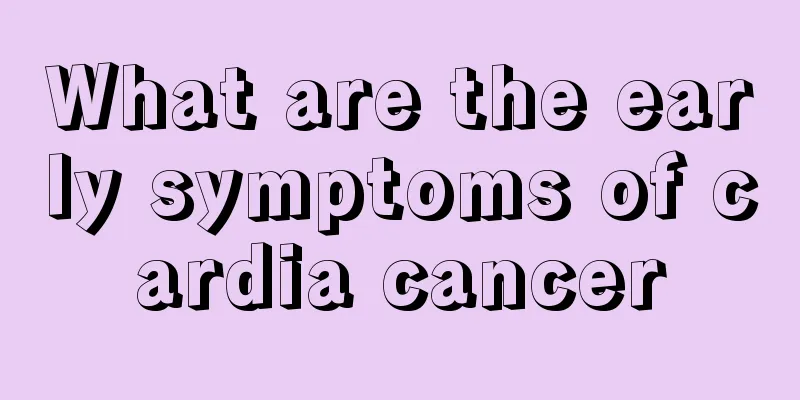What does allergic constitution mean

|
As your social circle expands and you come into contact with more and more people, you will find that more and more people around you have allergies. Because there are many substances that can become allergens for people, among which pollen, mango and other substances are the most common allergens. I believe everyone has heard of the term allergic constitution, which may be closely related to allergies. The following article will provide you with some knowledge about allergic constitution. What is an allergic constitution More and more people around me are experiencing allergic symptoms, with an increasing number of cases of itchy nose, itchy skin, itchy eyes, asthma, and coughing. Where lies the problem? Diet is one of the factors causing allergies, but allergic constitution is the most fundamental cause. Common food allergy symptoms for people with allergic constitutions include rhinitis, asthma, and cough in the respiratory system; itchy or red and swollen eyes; hives, eczema, angioedema, erythema, and itching on the skin; and abdominal pain, nausea, vomiting, diarrhea, gastrointestinal bleeding, itching in the oropharynx, and foreign body sensation in the digestive system. People with allergic constitution are generally those who are prone to allergic reactions and allergic diseases but cannot find the cause of the disease. People with "allergic constitution" may develop various allergic reactions and allergic diseases. For example, some suffer from eczema, urticaria, some suffer from allergic asthma, and some are particularly sensitive to certain drugs and may develop drug-induced dermatitis or even exfoliative dermatitis. However, occasional high reactivity to a known factor cannot be called "allergic constitution." Allergic constitution is also called special constitution. The causes of "allergic constitution" are complex and varied, but since the skin is the largest organ in the human body and is a natural barrier to protect the body, it can prevent the invasion of pathogens. It can secrete a "lytic enzyme" to kill invading bacteria. The sweat glands on the skin regulate body temperature, keeping it at around 37 degrees; the skin is sensitive to stimuli such as cold, heat, pain, and pressure; there are 2 to 4 million pain points, 500,000 touch points, and 30,000 heat points distributed on it. Skin problems are caused by the combined effects of internal and external factors, that is, the result of the combined effects of genes and the environment. Self-diagnosis method for allergic constitution 1. The patient has a sensitive constitution diagnosed by a physician, or has a family history of allergies. 2. When using acidic skin care products, there will be a stinging sensation if it is sour. 3. After drinking alcohol or staying in an unventilated room for a long time, the skin will become red and hot. 4. There will be winter itching, oily skin on the outside and dry skin on the inside, and the skin will look dull despite high oil production. 5. The skin is very thin and turns red when exposed to the sun. When it is not red, blue blood vessels can be faintly seen. If you have more than three, unfortunately, you basically have an allergic constitution. Your skin is relatively fragile and has poor resistance, and the rate at which water evaporates through the skin is faster than that of ordinary people. How to prevent allergies The most important thing for people with allergies is to avoid contact with allergy-causing substances as much as possible, because the more contact, the more immune substances against the allergens will be produced in the body, and the reaction will be more intense; on the contrary, if there is no contact with allergens for a long time, the corresponding antibodies or lymphocytes will gradually decrease, and the allergic reaction will gradually disappear on its own. A. Inhaled allergens: such as pollen, catkins, dust, mites, animal dander, oil smoke, paint, car exhaust, gas, cigarettes, etc. B. Ingested allergens: such as milk, eggs, fish, shrimp, beef, mutton, seafood, animal fat, foreign protein, alcohol, drugs, antibiotics, anti-inflammatory drugs, sesame oil, flavors, onions, ginger, garlic and some vegetables and fruits. C. Contact allergens: such as cold air, hot air, ultraviolet rays, radiation, cosmetics, shampoo, detergent, hair dye, soap, chemical fiber products, plastic, metal jewelry (watches, necklaces, rings, earrings), bacteria, mold, viruses, parasites, etc. D. Injectable allergens: such as penicillin, streptomycin, xenobiotic serum, etc. E. Self-tissue antigens: Self-tissue antigens whose structure or composition has been changed due to mental stress, work pressure, microbial infection, ionizing radiation, burns and other biological, physical and chemical factors, as well as latent self-antigens released due to trauma or infection can also become allergens. If the allergy is severe, you should go to the hospital for diagnosis and treatment and take appropriate anti-allergic drugs under the guidance of a doctor. |
<<: What to do if you are allergic to the legs of glasses
>>: Will allergies leave marks?
Recommend
Wrong laundry method is harmful to human health
Many people always try to save trouble when washi...
The efficacy of raspberries is good for treating impotence and infertility
At this season, all kinds of fruits are on the ma...
What supplements are given after surgery
No matter whether the patient undergoes a major o...
Will gastritis make the whole stomach hurt?
Gastritis is a great harm to people's bodies,...
Is pituitary tumor a chronic disease?
Is pituitary tumor a chronic disease? Pituitary t...
Infective Endocarditis Guide
Infective pericarditis is caused by inflammation ...
Which hospital is best for lung cancer treatment
Which hospital is best for treating lung cancer? ...
Early symptoms of rectal cancer
The early symptoms of rectal cancer may be relati...
What are the early symptoms of pulmonary obstruction
The lungs are the respiratory organs of the human...
How to relieve shoulder nerve pain?
Many friends who overwork are prone to shoulder n...
What is the reason for the philtrum to beat
Ren Zhong is an important acupuncture point locat...
Overview of laryngeal cancer pathology
Do you know what laryngeal cancer is? Do you know...
Why are the eye sockets sunken
The eye sockets of us Oriental people are general...
Detailed explanation of how to increase running speed
Some students need to prepare for school sports e...
What are the advantages and disadvantages of Korean steaming?
Korean steaming is an ancient health-preserving m...









